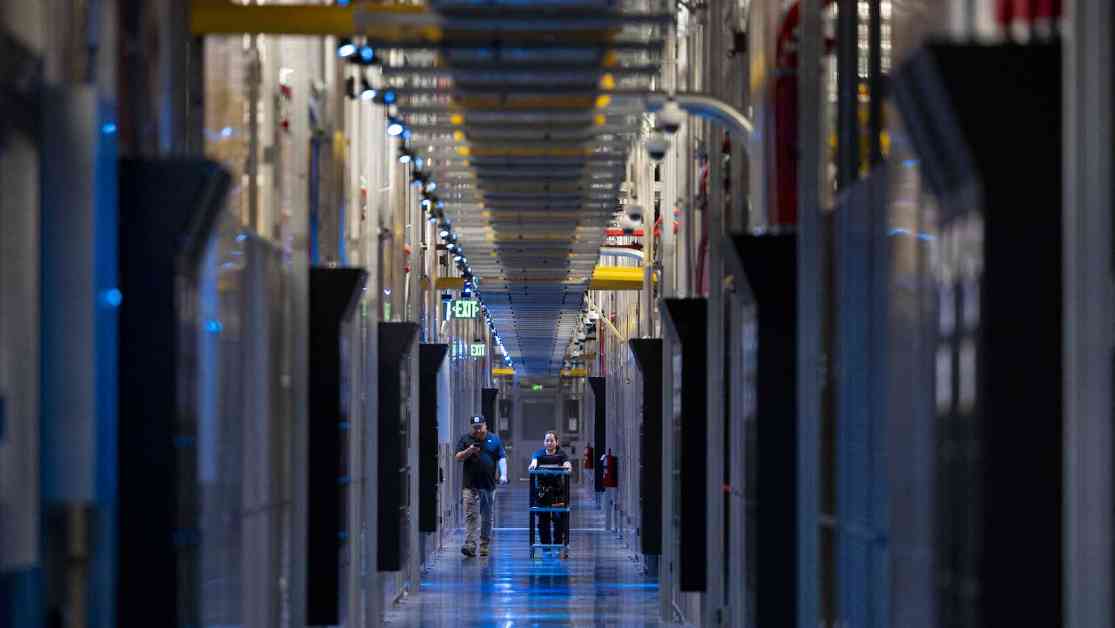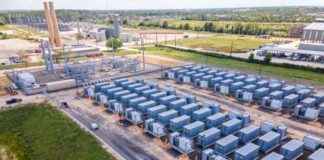In a world where technology advances at an unprecedented pace, the demand for electricity has surged, driven largely by the exponential growth of data centers. These facilities, home to powerful computer servers that fuel online activities like generative AI and cryptocurrency, have led to a dramatic increase in the need for energy resources. The implications of this surge are far-reaching, touching on issues of environmental impact, resource allocation, and policy decisions.
Three years ago, Southern Company, one of the largest electric utilities in the United States, made a bold move by announcing the impending retirement of the majority of its coal-fired power plants. This decision was a significant step towards achieving the company’s goal of achieving net zero greenhouse gas emissions by 2050. The announcement was met with approval from state regulators, signaling a commitment to reducing reliance on fossil fuels.
However, a recent development has seen Southern Company’s subsidiary utilities, such as Georgia Power, backtrack on their initial plans to retire coal plants. The reason cited for this change of heart is the unprecedented surge in electricity demand, driven primarily by the rapid expansion of data centers. Georgia Power’s latest integrated resource plan forecasts an increase in demand by 8,200 megawatts by 2030-31, necessitating a reevaluation of existing energy resources.
The resurgence of coal usage in response to the data center boom is not unique to Georgia, but rather part of a national trend observed in states like Virginia, Texas, and Oregon. This shift towards fossil fuels comes at a time when environmental concerns are at an all-time high, with experts highlighting the urgency of reducing greenhouse gas emissions. The decision to prolong the life of coal plants that were once slated for retirement has raised alarms among environmental advocates and consumers alike.
Jennifer Whitfield, senior attorney at the Southern Environmental Law Center, described Georgia Power’s decision to delay coal plant closures as an “odd choice.” The move has sparked controversy and calls into question the feasibility of meeting energy demands through traditional, polluting sources like coal. Critics argue that investments in renewable energy and energy efficiency should take precedence over prolonging the life of coal plants.
As Georgia Power grapples with the unforeseen surge in energy demand, lawmakers and regulators are also faced with the challenge of adapting to rapidly evolving circumstances. The tax incentives offered to data centers in Georgia, once seen as a boon to economic development, are now under scrutiny as legislators reconsider their impact on energy resources and the environment. The Georgia Public Service Commission has taken proactive steps to address concerns regarding the cost burden on consumers resulting from the energy supply needed to power data centers.
The uncertainty surrounding the demand projections for data centers has further complicated the situation. Experts have raised questions about the accuracy of Georgia Power’s forecasts, highlighting the variability and inflated nature of projections in the energy sector. The growing competition among states to attract data centers has added another layer of complexity, with utilities attempting to anticipate energy demands that may not materialize.
Looking ahead, the future of energy production and consumption hinges on critical decisions that balance technological advancement with environmental sustainability. The choices made now will shape the trajectory of energy policy, resource allocation, and environmental impact for years to come. As data centers continue to drive demand for electricity, stakeholders must work together to find solutions that meet the needs of a rapidly evolving energy landscape.














